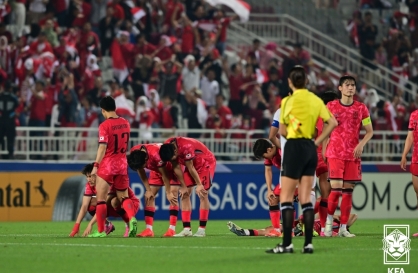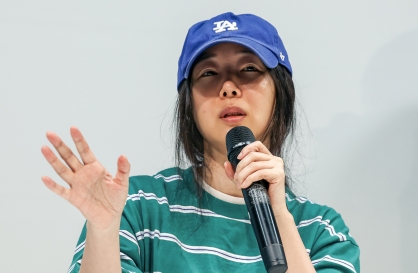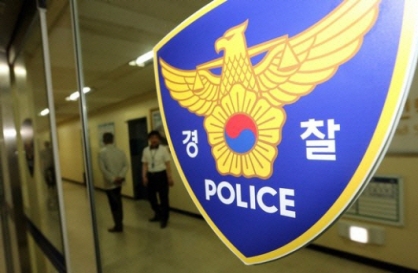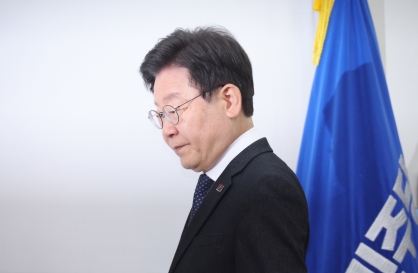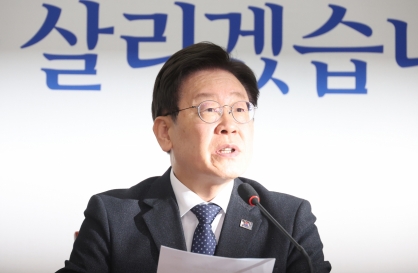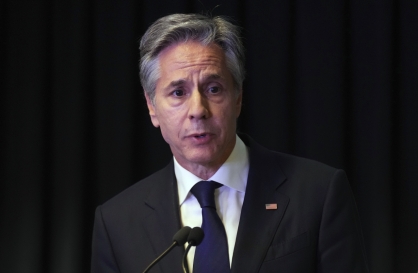Unionized medical workers ended their two-day strike Friday, a relatively brief walkout. However, it caused operational disruption at hospitals and much inconvenience to patients across the nation, showing how much damage such a strike could generate -- even in a short period of time.
After all, hospitals play crucial roles of treating and saving people in their local communities. Massive disruptions started by a walkout could delay surgical operations and emergency treatment, putting innocent patients in critical danger. This is why the government and medical workers must work out a compromise.
Last week, the two parties failed to hammer out a solution. As a result, around 45,000 nurses, caregivers and other members of the Korean Health and Medical Workers' Union (KHMU) waged a general strike demanding state support for public medical services and the recruitment of more nurses at hospitals where medical staff members are in chronic shortage.
The KHMU, part of the Korea Confederation of Trade Unions, said Friday, “We have decided to end general strike after considering the safety of and inconvenience to patients.” While most of the unionized workers have returned to their workplaces, the KHMU, whose members belong to 140 medical institutions, said it would go on strike again if the forthcoming negotiations with the Health Ministry do not produce “meaningful alternatives.”
The KHMU claimed that it ended the strike as it successfully garnered public support and social awareness, but some critics noted its decision to quickly wrap up the walkout came after public sentiment turned negative about disruptions at hospitals around the country.
One notable fact was that 14 medical associations -- including the Korea Medical Association, the Korean Hospital Association and the Korean Licensed Practical Nurses Association -- issued a statement that opposed the KHMU strike, shedding light on the skeptical views about the walkout even in the medical sector.
Given that the KHMU had initially threatened to stage a prolonged general strike, policymakers might have breathed a sigh of relief about the earlier-than-expected end of the walkout. However, patients and their family members were forced to go through painful experiences as time-sensitive surgical operations and emergency care were delayed or canceled due to the strike -- the biggest medical workers’ walkout since 2004.
The National Cancer Center, Pusan National University Yangsan Hospital and other hospitals pushed back many surgeries, while discharging or transferring patients to other hospitals. The National Cancer Center canceled more than 100 surgeries scheduled for Thursday and Friday, and the National Medical Center saw the number of patients plunge to a tenth of the daily average. A number of emergency rooms did not function properly.
The government launched an emergency medical operation plan to address disruptions at hospitals, but it proved ineffective when a large number of medical workers joined a strike. If another general strike occurs and lasts for a longer period, the damage will be far larger and more devastating for patients fighting fatal diseases and in need of emergency care.
Unionized medical workers are calling for a full-fledged integration of nursing and caregiving services, and the introduction of a policy aimed at achieving a nurse-to-patient ratio of 1 to 5.
Although a drastic walkout by medical workers cannot be easily justified, the KHMU’s demands deserve close attention. South Korean medical workers face poor working conditions even though the country is known for its solid national health care system. In Korea, the average number of patients assigned per nurse is 16.3 at major general hospitals, which is two to three times that of major developed countries such as the United States (5.4) and Japan (7). The shortage of medical workers inevitably leads to problems such as overwork. More than 10 percent of licensed nurses reportedly switched to other professions as of 2020, worsening the already severe labor shortage.
Against this backdrop, the government has to tackle the chronic labor shortage and other critical health policy issues in earnest, and the KHMU should avoid taking drastic actions that could put the life and health of people in serious danger. Both the government and the KHMU should seek a compromise to prevent fatal disruptions.
